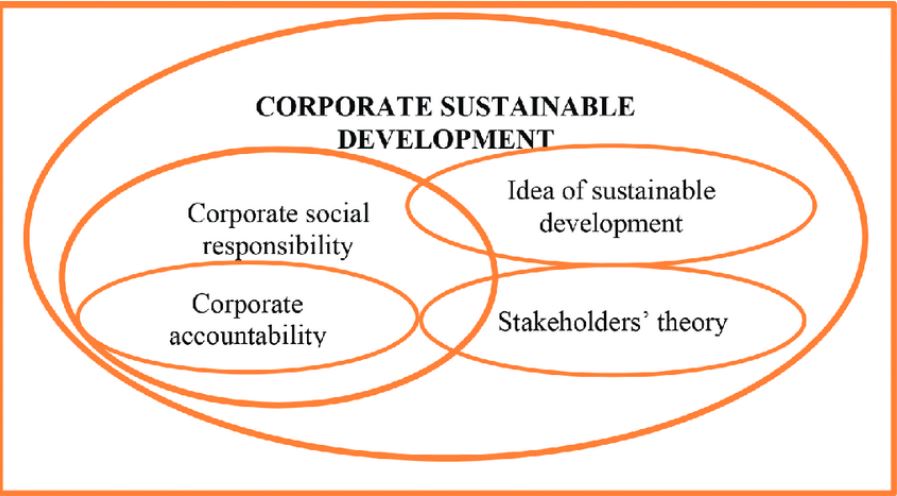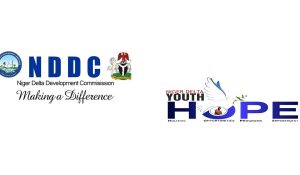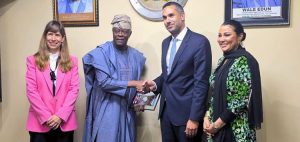
BOOK REVIEW! “Social Responsibility And Sustainable Development”
Wole Adamolekun and Rotimi Olatunji (2022).
Social Responsibility And Sustainable Development.
Ibadan: Malthouse Press.
ISBN978-978-58298-8-4. 309 pages.
Nothing beats a buffet served at the right time to nourish and stop hunger. Adamolekun and Olatunji’s (2022) Social Responsibility and Sustainable Development fits into this analogy. The book has come out just in time to meet the need for relevant literature for the new courses arising from the National Universities Commission’s splitting of mass communication into seven cognate courses.
The National Universities Commission (NUC) split the Mass Communication degree program into seven programs in 2019. Public Relations Studies emerged as a distinct course. Others are Journalism and Media Studies, Advertising, Broadcasting, Film and Multimedia Studies, Development Communication Studies, and Information and Media Studies.
A central argument was the need for increased specialisation to equip graduates with industry-specific skills, improve their job prospects, and advance research output in the new disciplines. These laudable objectives have since faced the formidable reality of inadequate literature and human capacity.
Social Responsibility And Sustainable Development book advances research into one of the specialisms of public relations, Corporate Social Responsibility or CSR. It meets a need.
Social Responsibility and Sustainable Development by Wole Adamolekun and Rotimi Olatunji (2022) is a comprehensive book that explores the overlapping interests of these two critical concepts. The authors argue that social responsibility and sustainable development are inextricably linked, and that businesses and other organisations have a moral obligation to contribute to the sustainable development of the societies in which they operate.
The book’s ten chapters cover the theoretical foundations of social responsibility, motivations for social responsibility, social responsibility in the traditional African context, the role of business, stakeholder engagement, and case studies of social responsibility and sustainable development initiatives from around the world.
The authors locate Africa in the discourse on social responsibility, stating, “Indigenous African societies demonstrate collective and communal involvement in the business of social responsibility even before any contact with the Western social responsibility practices.” Enter the African philosophies of Ujamaa and Ubuntu. “The distinguishing feature of Ujamaa is that a person becomes successful through the people or community.”
They define CSR as “the voluntary attempt by corporate bodies to develop a convivial relationship with their host communities through giving back to the society.”
Adamolekun and Olatunji take a broad approach to social responsibility, arguing that it is not just the responsibility of large corporations. Instead, they say that all organisations, regardless of size or sector, have a role in promoting social responsibility and sustainable development.
They then expound on the role of business in social responsibility and sustainable development: The authors argue that companies have a moral obligation to contribute to the sustainable development of the societies in which they operate. They also say that social responsibility and sustainable development are good for business. By investing in social and environmental programs, companies can improve their reputation, attract and retain employees, and reduce costs.
Adamolekun and Olatunji argue that stakeholder engagement is essential for effective social responsibility and sustainable development initiatives. They define stakeholders as any individual or group affected by or able to affect the organisation. Stakeholder engagement can be used to identify and prioritise social and environmental issues, develop and implement social responsibility and sustainable development initiatives, and monitor and evaluate the impact of these initiatives.
One of the book’s key strengths is its focus on the African context. The authors argue that African businesses and organisations have a unique opportunity to contribute to sustainable development, given the continent’s rich cultural heritage and growing economic importance.
The book also includes some practical case studies of social responsibility and sustainable development initiatives worldwide. These case studies provide valuable insights into how businesses and organisations implement these concepts. Some draw from their work or consulting experiences.
The book Social Responsibility and Sustainable Development is a resource for anyone interested in learning more about these two critical topics. It is well-written, informative, and provides a practical perspective on implementing social responsibility and sustainable development initiatives.
It benefits from Dr Adamolekun’s considerable corporate practice experience. An associate professor of mass communication at Elizade University, Adamolekun has forty years of experience in Corporate Communications, Downstream Oil Sector Operations, Microcredit Administration, Youth and social Mobilization, Human Resources Management, and Entrepreneurship.
Rotimi Olatunji is a Public Relations and Advertising Professor and the immediate past Dean of Lagos State University School of Communication (LASUSOC). He received his Bachelor of Arts (B.A.) degree (First Class Honours (Archaeology)) from Obafemi Awolowo University (Ife) and his postgraduate degrees (M.A. & PhD) in Communication and Language Arts from the University of Ibadan, Ibadan, Nigeria.









